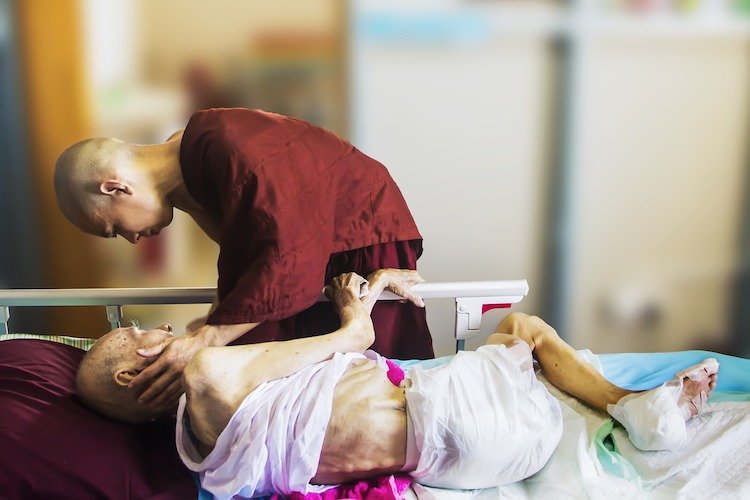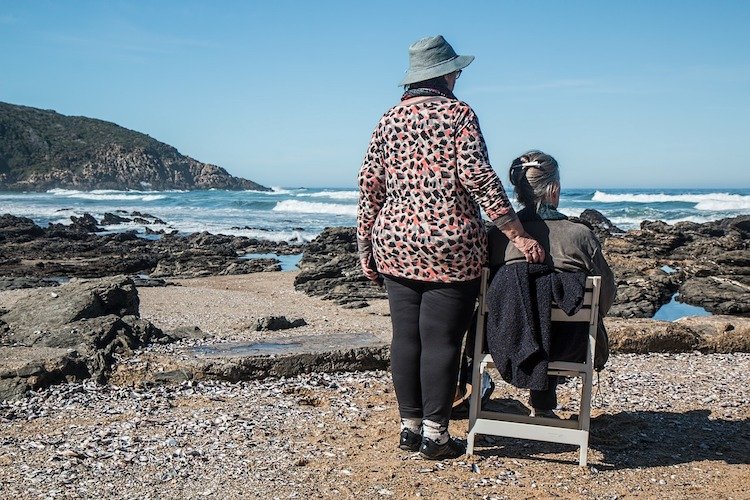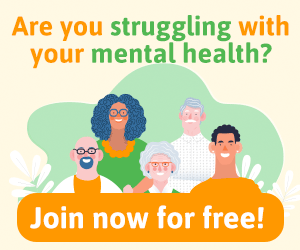Death is unavoidable, so why is it still taboo? And why do we not prepare for end of life better? Ed Gould looks at why planning for our passing needs an overhaul and discusses what really matters at the end of life.
We might not like to talk about it much, but death is a reality and very much a part of life. Ans how should we handle it for the greatest chance of happiness: when you're reaching the end of your life, what really matters?
From an early age, we learn that we're going to die some day. Nevertheless, for the vast majority of us, the sense of mortality we ought to feel simply does not come about in any meaningful way. Some of us never really seem to be preparing for death or considering what it means for us. This is particularly true of youngsters and many young adults in their 20s. Why?
Well, they may have never faced dealing with trauma of losing a parent or loved one. Some people put it down to the fact that a younger life sees many years stretching out before them. Therefore, being close to death is something of an alien concept. Some scientists offer a more mechanistic point of view, stating that the frontal lobes of youngsters are not yet fully developed to deal with the loss or grief.
According to Gary Wenk, PhD, “the reason the frontal lobes are not fully engaged [with the rest of the brain]... is because they have not yet completed the process of neuronal myelination.” Myelination can be thought of as the electrical wiring that's inside all of our brains.

Planning for death: a subject that is still taboo
Women tend to finish the process of neuronal myelination in their mid-20s. For men, on average, it happens at the age of about 30. Further research is required into how this process impacts on views about death – and many other aspects of life. It does offer an indication as to why our thoughts can turn to the subject in later adult life, compared to when we were younger.
Is death really still taboo?
One of the reasons we're not preparing for death and that it's not discussed in modern society is that it still remains a taboo. Certainly, sociologists have looked closely into the theory that death is not mentioned in contemporary literature very much, such as Tony Walter's 1991 study into British popular culture.
Walter poses several questions which challenge the idea that death truly is a taboo subject or constrained by society in some way. He points out the many examples of death that are available in culture, from TV shows to newspaper articles.
“From an early age, we learn that we are going to die some day. Some of us never really seem to be preparing for death and what it means for us.”
Although he stresses that many taboo theories exist, he says that people can switch between them depending on the argument they are creating. For example, someone might say that it's individuals, not modern society, that denies the reality of death. Whilst – almost in the same breath – individuals discuss it, but it's not a mainstream topic for the media of healthcare professions.
Ultimately, we're left with the idea of whether preparing for death is a taboo subject or not is a confused picture. In some circles, it may be, but palliative care physicians, like BJ Miller, are increasingly arguing that it should not be.
Wh
bbbb
What really matters at the end of life: TED/BJ Miller
Death and dying: a palliative care giver's perspective
Although religion has been happy to talk about planning for death and, by extension, the afterlife, few outlets for expression about dying exist. BJ Miller's view is that people in his line of work are able to talk about death and its implications for family members.
Few healthcare professionals really discuss dying itself, though. This is a subtle distinction but an important one. Death might be the subject of many discussions and plans, even philosophical theorising, but dying isn't. After all, aren't many of us more comfortable with the idea of being dead than we are of dying? In Miller's own words, the reason for this is that: “Dying can involve pain and suffering. In other words, we fear it more than death itself.”
“It's essential to think about what really matters at the end of your life and how and where you want to spend your final moments.”
Miller, who lost his lower limbs and hand in an accident in his youth, says that his relationship with dying began that day. It has informed his views of palliative care ever since. He says that we need to open a 'big conversation' about the experience of dying.
This will help us to improve the way in which care is given to those nearing the end of their life, affording them greater happiness. “The American health care system has more than its fair share of dysfunction to match its brilliance,” Miller says. “[Working in]... a hospice and as a palliative medicine doc, I've seen care from both sides... but we are unwitting agents for a system that too often does not serve.”
What really matters at the end of life: the rethink
Miller's concept is “to rethink and redesign how it is we die”. In hospitals, he calls for patients not to be whisked away immediately after they've passed on. For cleaning crews not to be immediately called in, for instance, but for a moment or two of reflection to be allowed.
Indeed, he says that hospitals are not really designed for handling dying patients, but for saving lives. He calls for people to be able to die in greater comfort than they are often able to in medical facilities. There they're often hooked up to monitoring equipment and various tubes.
- How to help a grieving friend: 7 ways to be there
- 7 healing quotes on grief to inspire
- The 8 types of grief explained
Working in a hospice, Miller has a clear view on what makes for a more dignified departure from life. That is to spend the last few months, weeks or hours doing what it was we enjoyed in life. He cites the example of one person for whom having her dog by her side was her priority.
In another case, an individual wanted to enjoy her smoking habit right to the end since she was past any health benefit she might derive from giving up. It's hard to imagine either scenario in a standard hospital today.

Death with dignity: spend the last days doing what you enjoy most
Put another way, Miller's ideas are about de-medicalising the process of dying. He's calling for an approach which is person-centred and not focussed on medical procedures, or dealing with individual instances of pain or bodily deterioration as they might crop up.
It's easy to understand why healthcare professionals take the approach they do. They've been trained to heal and to help handle pain all of their working lives. However, by so doing we can be missing one of the fundamentals of dying and what really matters to people at the end of their lives. It's a natural phenomenon and very much a part of life.
Shouldn't we all, therefore, consider the merits of planning for death? And doing that in a way that has a meaning and connection with the way we have lived? Surely, if we do, then the chances of a greater dignity in death are vastly improved. This will be of benefit not just to ourselves, as individuals, but to those around us – both professionals and loved ones – in our final moments. This is what really matters at the end of life.
The role of psychology in dying
Miller's ideas are from throwing the responsibility of preparing for death onto individuals – thereby letting healthcare givers off the hook. The new cultural approach to dying sought by Miller, and others, requires a societal approach.
Thankfully, psychologists have already started work in this area. For example, Phillip M. Kleespies, PhD, wrote in his book, Life and Death Decisions: Psychological and Ethical Considerations in End-Of-Life, that psychological interventions can make a huge impact on dying people who are preparing for death. He says they can help with the ability to cope with and adapt to loss and advanced illness as they develop.
“Miller has a clear view on what makes for a more dignified departure from life. That is to spend the last few months, weeks or hours doing what it was we enjoyed in life.”
The psychologist William E. Haley, PhD, who works at the University of South Florida states that, psychologists are already training. This happens in the mental health treatment of major chronic illnesses in increasing numbers. These include conditions such as heart disease, cancer, dementia, and, in some cases, conditions which lead to chronic pain.
The concept of a good death
According to Emmanuelle Bélanger MSc, PhD, and Candidate of the Division of Social and Transcultural Psychiatry and Department of Family Medicine at McGill University, the concept of a good death is one that has changed in the last 50 to 60 years.
In the 1980s, it became associated with dying well or dying with dignity. This was very different from the Middle Ages. Conception of a good death would have involved both a family and a priest being present. In the 18th century, as more was known about medicine, so the role of the doctor became more important in the concept of a good death.
This old-fashioned conception is now being overturned by some in the medical profession, notably Atul Gawande, a practising surgeon. His book Being Mortal argues that the concept of a good death should be turned on its head. That the focus ought to be on a good life, instead. In Being Mortal he makes a compelling case for where medical interventions should stop and where a dignified process of death should begin for greater happiness.
Echoing BJ Miller's ideas, he points out that many medical procedures make life more uncomfortable, not less. It even reduces the amount of (conscious) time we have left in some cases. Whichever view you take on the best way to spend your final days on Earth, it's essential to think about what really matters at the end of your life and how and where you want to spend your final moments. ●
Main image: colourbox.com
happiness.com | The fine art of being: learn, practise, share
Are you a happiness.com member?
Join free now and:
■ enjoy our happiness magazine
■ share and support in our happiness forum
■ Develop with free online Academy classes
Written by Ed Gould
 Ed Gould is a UK-based journalist and freelance writer. He's a practitioner of Reiki.
Ed Gould is a UK-based journalist and freelance writer. He's a practitioner of Reiki.




Join the conversation
You are posting as a guest. If you have an account, sign in now to post with your account.
There are no comments to display.